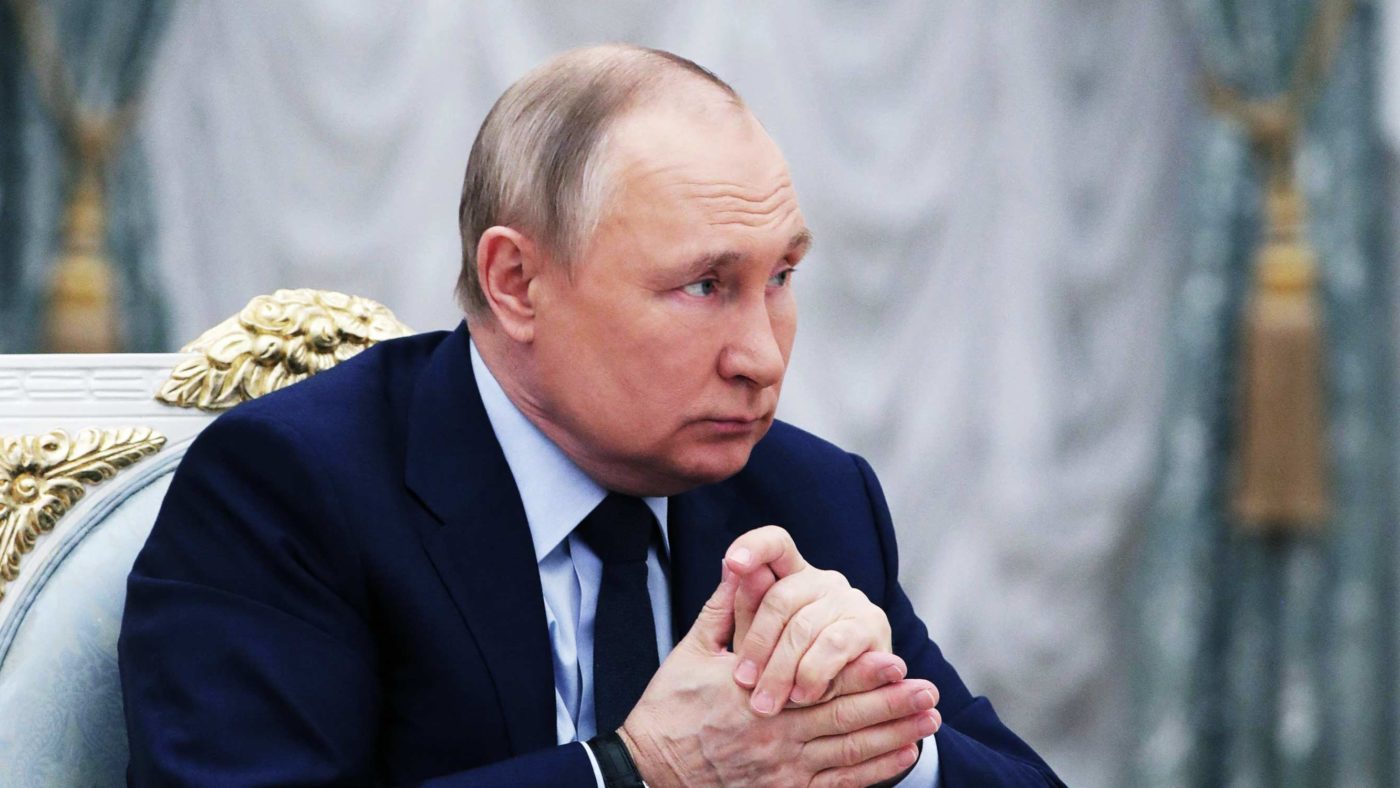The sight of two British nationals being paraded on Russian state TV marks a new front in the propaganda war the Kremlin has long waged against the West.
Shaun Pinner and Aiden Aslin, both of whom were serving in the Ukrainian army when they were captured by Russian forces, appeared on the Rossiya 24 channel earlier this week, pleading with Boris Johnson to exchange them for the pro-Russian Ukrainian politician Viktor Medvedchuk, who has himself been detained by Ukraine’s security services.
Relations between the UK and Russia could hardly get any worse. Johnson and other senior British politicians have been banned from Russia for their ‘hostile’ stance, and the Russian Ministry of Foreign Affairs has accused the UK of an ‘unbridled information and political campaign aimed at isolating Russia internationally, creating conditions for containing our country and strangling the domestic economy’ – none of which the British government would deny.
Still, the capture of Pinner and Aslin puts the Government in a particularly tricky position. The Britons’ scripted statements, almost certainly written for them by the Russians, were designed to pull on the public’s heartstrings, with Aslin saying that ‘if Boris Johnson really does care about British citizens like he says he does then he will help’.
But it’s difficult to see how the Prime Minister can readily negotiate with Putin at the same time as his government is shipping arms to the Ukrainians and imposing wide-ranging sanctions on members of the Russian regime. More to the point, it is not Britain’s place to tell the Ukrainian government what to do with Medvedchuk, whose release would be a huge propaganda win for Russia.
When it comes to using hostages as bargaining chips, Putin may have taken inspiration from the UK’s negotiation with Iran for the release of Nazanin Zaghari-Ratcliffe and Annosheh Ashoori. As Stephen Pollard warned on CapX at the time, however much the two prisoners deserved to be released, effectively agreeing to pay off a despotic regime set a dangerous precedent.
That said, Russia has form when it comes to detaining Westerners under the flimsiest of pretexts. Take Paul Whelan – a citizen of the US, Canada, the UK and Ireland – who was arrested in Moscow in 2018 and later sentenced to 16 years in prison for espionage. Or Trevor Reed, a former US marine sentenced to nine years in jail for supposedly endangering the ‘life and health’ of Russian police officers during an altercation. Then there is basketball star Brittney Griner, arrested in February 17 in Moscow on drugs charges and now facing a potential 10-year jail sentence.
Having failed to achieve a quick, decisive victory in Ukraine, Russia is now resorting to war crimes and doubling down on its hostage-taking tactics. While one certainly feels huge sympathy for Shaun Pinner and Aiden Aslin, offering a prisoner swap to secure their freedom would only encourage Putin’s despotic regime to continue using Western hostages as diplomatic pawns.
We cannot allow Putin to think that this is a profitable tactic. Simply put, the best way to prevent this happening again is to remove the incentive. We must not give in.
Click here to subscribe to our daily briefing – the best pieces from CapX and across the web.
CapX depends on the generosity of its readers. If you value what we do, please consider making a donation.


